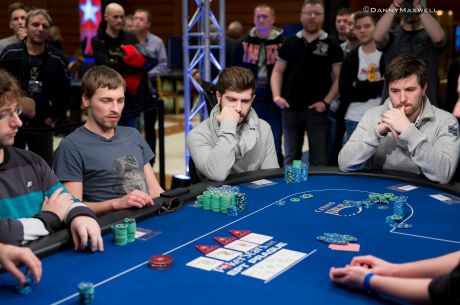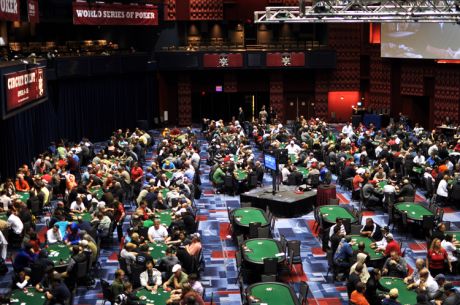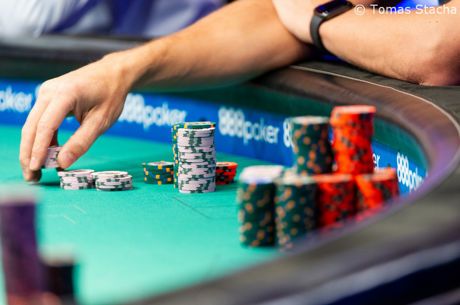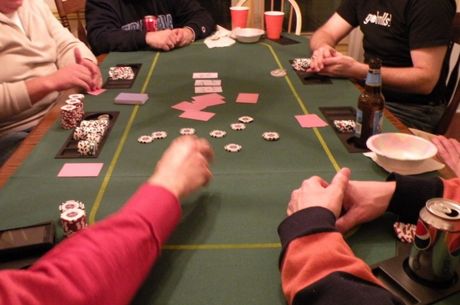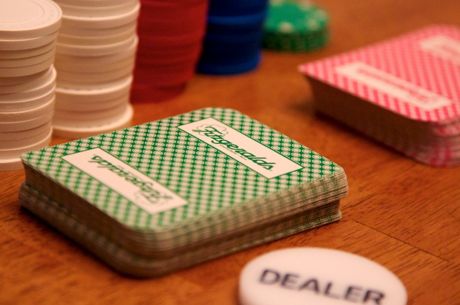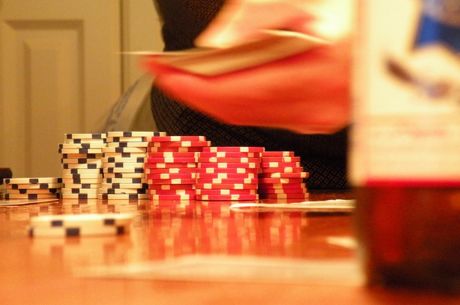Home Game Heroes: Upending Conventional Poker Wisdom -- Don’t Play With Strangers?

Last I time I introduced four pieces of conventional poker wisdom about home games, suggesting that while they each make sense and have elements of truth to them, as general rules of thumb they are in fact mostly wrong — and in fact better not to follow.
Today we’re going to look at the first of those four pieces of oft-delivered advice about home games, the notion that you shouldn’t play with strangers.
It sounds reasonable at first glance. If you limit yourself to playing with people you know, you figure to be less likely to be cheated, less likely to be up against someone who is a real card shark, and more likely to have an enjoyable experience. Playing with strangers adds risk and uncertainty — two things that poker already has enough of, yes? So maybe this is one rule of thumb that makes sense.
I would heartily disagree. To begin with, all of your friends were, at one time or another, strangers to you. But maybe that is too metaphysical or grandiose a concept to have any relevance to this admonition. So let me look at the specifics.
I don’t think you’re more likely to be cheated by strangers. From my experiences, and they are considerable, rare though cheating is, it is more likely to be done by someone you know than by someone you don’t know.
The only time when I thought someone was trying to get an unfair advantage by cheating (by looking at cards as he shuffled them) it was a friend of mine. I will devote a few articles some time in the future to cheating, but leave it to say I don’t believe that playing poker with strangers opens you up to this any more than playing with people you know.
I recommend playing with strangers for many reasons. First of all, it is an excellent way to learn new games and new rules. Strangers bring with them all sorts of different experiences that they can share with you (if you are open to them). They also bring to you different playing styles.
Let’s face it, if you play with the same exact lineup over and over again, your style of play tends to become somewhat habitual. Playing with a different group of opponents, or adding new players to your own game, requires that you face poker thoughtfully as you address the different styles of the new players. For my money, that’s a good thing.
Perhaps most important, however, is that even slow- and medium-witted opponents begin to figure you out after a while. It’s tougher to win money consistently from a group of friends, as they tend to make adjustments to your game that make it harder for you to do so.
At it’s simplest level, if you are considerably better than the opponents in your usual lineup and if you tend to win a lot of money from them, if they learn nothing else, they learn to avoid you. While it’s true that you can use this avoidance to your advantage, it will be a diminished advantage as your opponents tend to stay out of pots in which you are involved. Though your winnings may become very consistent, they will also be small. And, I think, the game will become less fun.
It may be that you get together with your friends primarily as a fun social experience, with the poker really only an excuse or backdrop to your principal purpose of having a good time. If that’s the case, then avoiding strangers makes sense. But if the primary reason you are getting together is to engage in a poker game, with all of its attendant challenges, then I would argue that playing with strangers — at least a few from time to time, if not a regular lineup of them — is a positive part of your game.
Keep in mind also that the stranger brings a new source of money to the game — or if you are new to the game, then it brings you to a game that is a new source of money.
Finally, I have found that strangers — whether seated all around the table of a game that is new to you or seated one or two at a time in your regular game — are a conduit to other players and other games.
Your quest, as a serious home game player, should be to seek out good home games in which you can make money and have a good time. By meeting new players and experiencing new games, you advance that quest, even if the particular player or group of players may be better than you.
There are many reasons, then, not to follow the oft-shared advice not to play with strangers. Next time we’ll consider another chestnut about home games — that you should set a start time and end time and stick to it — and explain why that, too, isn’t necessarily advice you should be following.
Ashley Adams has been playing poker for 50 years and writing about it since 2000. He is the author of hundreds of articles and two books, Winning 7-Card Stud (Kensington 2003) and Winning No-Limit Hold’em (Lighthouse 2012). He is also the host of poker radio show House of Cards. See www.houseofcardsradio.com for broadcast times, stations, and podcasts.
Want to stay atop all the latest in the poker world? If so, make sure to get PokerNews updates on your social media outlets. Follow us on Twitter and find us on both Facebook and Google+!
In this Series
- 1 Home Game Heroes: Upending Conventional Poker Wisdom About Home Games
- 2 Home Game Heroes: Upending Conventional Poker Wisdom -- Don’t Play With Strangers?
- 3 Home Game Heroes: Upending Conventional Poker Wisdom -- Set an End Time and Stick To It?
- 4 Home Game Heroes: Upending Conventional Poker Wisdom -- Never Play With Scared Money?
- 5 Home Game Heroes: Upending Conventional Poker Wisdom -- Avoid Wild Card Games?

